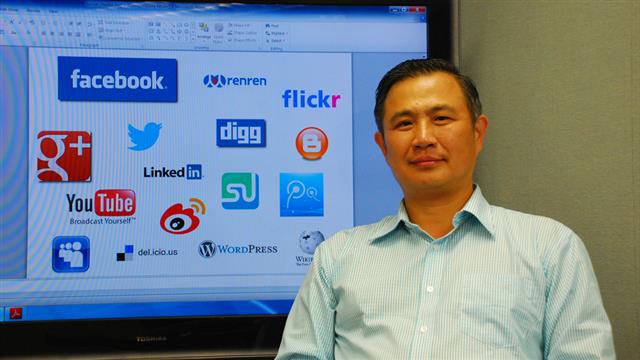In January, the world’s largest search engine Google warned of a flu outbreak in the US, causing a ripple of anxiety across the country. Google Flu Trends, a project launched in 2008, analyses cumulative search figures to make forecasts about the ebb and flow of flu trends. According to the Google Flu Trends website, millions the world over search health-related information on the Internet every week, with search topics changing according to the seasons. For instance, in summer, there are more people looking for content on sunburn. Researchers discover that the number of times flu topics are searched corresponds to the number of people exhibiting flu symptoms. Analysing these data allows them to predict a flu outbreak in a certain region. This doesn’t mean that Google Flu Trends can replace a disease monitoring system of course. Nonetheless it has performed laudably since its launch, even beating the Centers for Disease Control and Prevention (CDC) in the US in predicting a flu outbreak.
Prof. Irwin King of the Department of Computer Science and Engineering explained that Google Flu Trends is an example of how social computing can be applied to real life. Simply put, social computing is the use of machine learning, data mining and web intelligence to analyse the massive volumes of data generated by blogs, Facebook, YouTube and other social media, in order to gain insight into social relationships. ‘This has unusual implications for “big data” which is of increasing importance,’ Professor King pointed out. ‘The last eight or 10 years have seen the blossoming of many new social phenomena, which has given rise to an incredible amount of data. Social computing which analyses and tries to understand such data has become an important area in computer science. You can say that social computing is where social behaviour meets computing systems.’
‘Big data’ is a topic public and private corporations and organizations cannot afford to ignore. One of the subjects Professor King studies and teaches at CUHK is social computing. He remarked that all activities we conduct on the Internet via computers or mobile communication equipment become data. When corporations get hold of such data, they can identify trends in the preferences and characteristics of their service targets. This helps them to design products and services that better fit market needs. Not surprisingly, organizations have been quick to get their hands on such data with the attitude often of ‘store first, decide later’.
Several mainland students who took Professor King’s social computing course have completed a fascinating project. They analysed GPS data from taxis in Nanjing, and using those on traffic conditions at different time periods in different parts of the city, worked out the most efficient routes. What’s more, they managed to calculate the median, highest and lowest incomes of taxi drivers in the city.
Professor King had been a visiting professor at UC Berkeley for two years, returning to CUHK only in 2012. While at Berkeley, he taught two courses related to social computing and big data. He also conducted research at AT&T in San Francisco, making forecasts about a person’s identity and subsequently behaviour and habits based on his or her patterns of telephone usage and communication. This kind of research not only has enormous commercial potential, it is also helpful for understanding human behaviour. Professor King observed that many governments are engaged in similar research, in particular, those grappling with terrorism.
He added that data analysis is nothing new in computer science, but with the boom in Internet and mobile telecommunication technologies, the field is developing at an astronomical rate. The rise of social computing can be said to be a peak of such developments. ‘Contemporary digital society is an open group. Participants should be aware that anything they do will leave traces. They must take the necessary safety precautions. More importantly, they should watch what they say or do. Protection of privacy should start with the self.’



